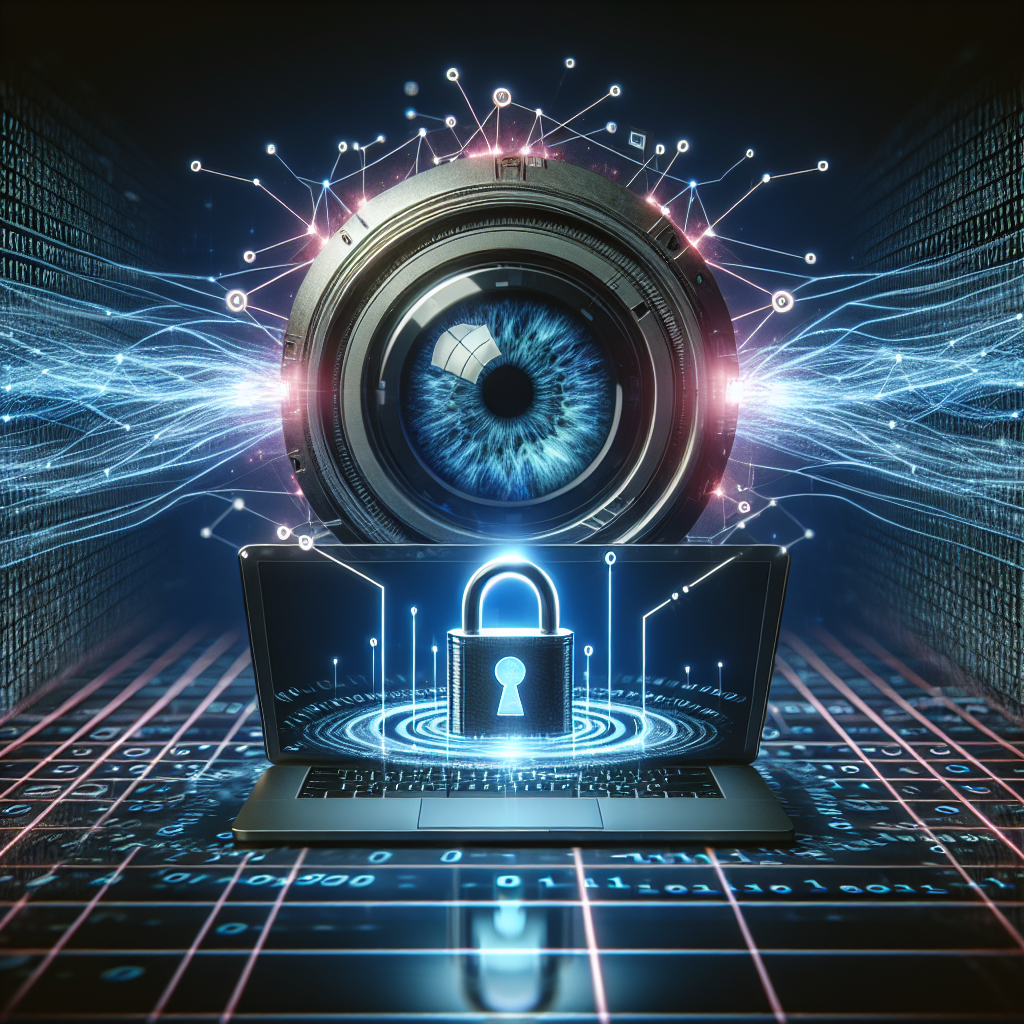In today’s digital age, personal data protection has become a critical issue as more and more companies and governments are using AI-powered surveillance technologies to collect and analyze vast amounts of data on individuals. The proliferation of these technologies has raised concerns about the potential for abuse and misuse of personal data, leading to calls for stronger regulations and oversight to protect individuals’ privacy and rights. In this article, we will explore the challenges of protecting personal data in the age of AI-powered surveillance and provide some recommendations for how individuals can safeguard their privacy in this increasingly connected world.
The Rise of AI-powered Surveillance
AI-powered surveillance technologies have become increasingly prevalent in recent years, driven by advances in artificial intelligence, machine learning, and big data analytics. These technologies enable organizations to collect, store, and analyze vast amounts of data on individuals, including their online activities, social media posts, and even their physical movements through facial recognition and other biometric technologies.
While these technologies offer many benefits, such as improved security, more personalized services, and greater efficiency, they also raise serious concerns about privacy and data protection. The sheer volume of data being collected and analyzed by AI-powered surveillance systems makes it easier for organizations to track and monitor individuals without their knowledge or consent, leading to potential abuses of power and violations of privacy rights.
Challenges of Protecting Personal Data in the Age of AI-powered Surveillance
One of the biggest challenges of protecting personal data in the age of AI-powered surveillance is the lack of transparency and accountability in how data is collected, used, and shared. Many organizations that use AI-powered surveillance technologies do not adequately inform individuals about the data they are collecting or how it will be used, making it difficult for individuals to understand and control their own personal information.
Another challenge is the potential for discrimination and bias in AI-powered surveillance systems. These systems rely on algorithms to analyze data and make decisions, but these algorithms can be biased or flawed, leading to unfair treatment of certain individuals or groups. For example, facial recognition technologies have been shown to have higher error rates for people of color, leading to concerns about racial profiling and discrimination.
Furthermore, AI-powered surveillance systems can also be vulnerable to hacking and data breaches, putting individuals’ personal information at risk of being stolen or misused. As these systems become more sophisticated and interconnected, the potential for cyberattacks and data breaches will only increase, posing a significant threat to individuals’ privacy and security.
Recommendations for Protecting Personal Data
Given the challenges of protecting personal data in the age of AI-powered surveillance, it is important for individuals to take proactive steps to safeguard their privacy and rights. Here are some recommendations for how individuals can protect their personal data in this increasingly connected world:
1. Be informed: Educate yourself about the types of data being collected about you and how it is being used. Read privacy policies and terms of service agreements carefully to understand how your personal information is being collected, stored, and shared.
2. Limit your exposure: Be cautious about sharing personal information online and on social media. Consider using privacy settings to control who can see your information and limit the amount of data you share with third parties.
3. Use strong passwords: Create complex passwords for your online accounts and change them regularly to prevent unauthorized access to your personal information.
4. Encrypt your data: Use encryption tools to protect your data from being intercepted or accessed by unauthorized parties. Consider using a virtual private network (VPN) to secure your internet connection and encrypt your online activities.
5. Be vigilant: Monitor your online accounts and credit reports regularly for any suspicious activity or unauthorized access. Report any suspicious behavior to the appropriate authorities and take steps to secure your accounts and information.
6. Advocate for stronger regulations: Support efforts to enact stronger regulations and oversight of AI-powered surveillance technologies to protect individuals’ privacy and rights. Urge policymakers to create laws that protect personal data and ensure accountability and transparency in how data is collected and used.
FAQs
Q: Can AI-powered surveillance technologies be used for good purposes?
A: Yes, AI-powered surveillance technologies can be used for good purposes, such as improving security, enhancing public safety, and providing personalized services. However, it is important to ensure that these technologies are used responsibly and ethically to protect individuals’ privacy and rights.
Q: How can individuals protect their personal data from being collected and analyzed by AI-powered surveillance systems?
A: Individuals can protect their personal data by being informed about the types of data being collected about them, limiting their exposure online, using strong passwords and encryption tools, monitoring their accounts for suspicious activity, and advocating for stronger regulations to protect their privacy and rights.
Q: What are some examples of AI-powered surveillance technologies that are being used today?
A: Some examples of AI-powered surveillance technologies that are being used today include facial recognition systems, predictive policing algorithms, social media monitoring tools, and smart city surveillance systems. These technologies are used by governments, law enforcement agencies, corporations, and other organizations to collect and analyze data on individuals for various purposes.
In conclusion, protecting personal data in the age of AI-powered surveillance is a complex and multifaceted challenge that requires a coordinated effort from individuals, organizations, and policymakers. By educating yourself about the risks and taking proactive steps to safeguard your privacy and rights, you can help protect your personal data in this increasingly connected world. Remember, your data is your digital identity – protect it wisely.

